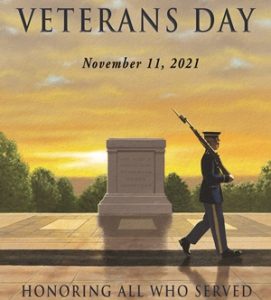Veterans Day Medley
I will begin by letting you know that I am fully aware of the difference between Memorial Day and Veterans Day.
I know for example that Memorial Day is a day for remembering and honoring military personnel who died in the service of their country, particularly those who died in battle or as a result of wounds sustained in battle.
Veterans Day is largely intended to thank living veterans for their sacrifices, but it also honors all of those who have served the country in war or peace – dead or alive.
And finally … some of the songs in this medley reference the fact that not all of the brave men and women who fought valiantly for this nation – especially those who fought in Vietnam – received the gratitude of a thankful nation. It would be wrong to ignore that fact and pretend they were welcomed home as the heroes they most certainly were.
Play button is on the left … Volume slider is on the right
Veterans Day Medley
John Michael Montgomery – Arlo Guthrie
Big & Rich – Billy Joel – Barry Sadler
Montgomery Gentry – Trace Adkins
George Jones – Arthur Davies

